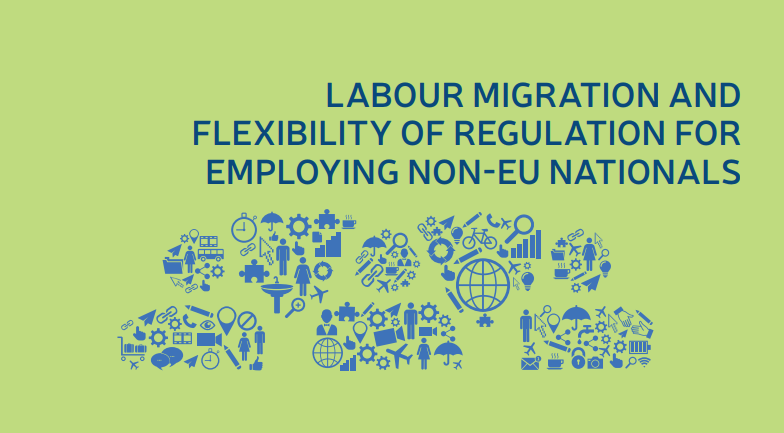Lithuanian Free Market Institute (LFMI) has just released its latest paper entitled Labor Migration and Flexibility of Regulation for Employing Non-EU Nationals. The analysis addresses the economic effects of migration and implications of employing non-EU nationals and provides a cross-country legislative and policy analysis on the flexibility of hiring of non-EU nationals in Lithuania, Estonia, Poland, Slovakia, Bulgaria, the Czech Republic, Denmark and Switzerland.
In particular, the paper argues that:
-
economic migrants rarely displace local labor force. Immigrants are more likely to complement existing labor force creating opportunities for growth and bringing needed skills;
-
foreign workers reduce imbalances in local economies by filling in the demand for workers that a local economy cannot provide or by taking up jobs that local workers do want to pursue;
-
immigrant workers take up lower paying jobs or receive lower pay compared to local workforce but this is the result of institutional and informal barriers to entry rather than evidence of wage-dumping;
-
immigration of highly skilled labor creates less political backlash and makes immigration politically less unattractive. It would be unreasonable to allow immigration of only highly skilled labor, especially if the economy creates demand for a multitude of qualifications and professions;
-
Europeans tend to overestimate the proportion of immigrants in their countries. In 19 EU Member States, public opinion overestimates the population of immigrants by at least a factor of two. That could provide some explanation why immigration results in political backlash despite its minor economic impact;
-
although migration is not the only solution to Europe’s economic problems, it could be a partial response to labor and skills shortages in the market;
-
there is no correlation between unemployment rates and the number of non-EU nationals in different Member States. Even more, changes in the number of permits issued for remunerated activity are not followed by respective changes in unemployment. All this suggests that employment of non-EU nationals plays no significant role in unemployment figures of EU Member States;
-
certain Central and Eastern European countries are losing labor force and failing to replace it with workers from non-EU countries; these countries should consider admitting more labor force from non-EU countries or they risk facing economic challenges in the long term;
-
the regulation of the admission and hiring of non-EU nationals is too burdensome and economically ineffective and calls for the optimization of current processes.



